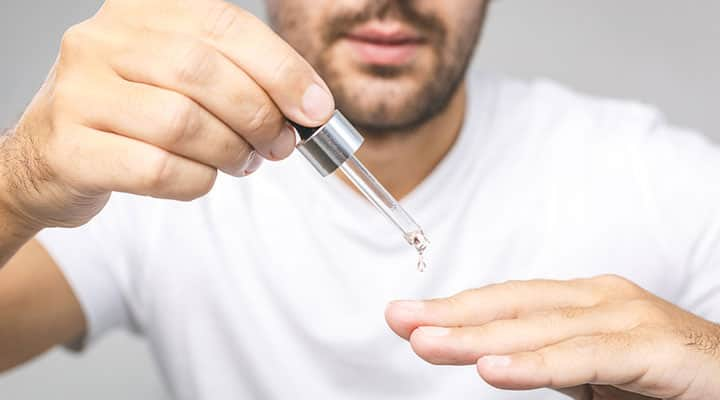
Ridges in Your Nails Point to Larger Health Problems
Published: October 2021
Ridges in your nails are unsightly, but they can also be more than just a cosmetic problem. While most nail ridges are harmless, in some cases, they can be signs of an underlying condition.
Because they grow from living skin cells, nail ridges are actually like front-line indicators for disease development and progression, so you should pay attention to any changes.
Two medical problems that can cause nail ridges are low thyroid and B12 deficiency, according to Dr. Rhett Drugge, editor-in-chief of The Electronic Textbook of Dermatology.
When nail ridges mean a low thyroid

Your thyroid hormone is like your metabolic throttle. Without it, your metabolism can struggle to get in gear. A low thyroid can affect everything from your head to your toes … literally.
Horizontal lines and brittle nails may indicate that you need a thyroid work-up. Low thyroid function can also make nails tear very easily, which is a common condition for thyroid patients.
If you are seeing symptoms in your nails and think you need your thyroid checked, talk to your doctor about laboratory testing. Because low thyroid levels can indicate various concerns, we suggest testing for TSH (thyroid stimulating hormone) and the two forms of thyroid hormone – T4 and T3. Make sure your doctor checks total T4, free T4, and free T3 to get a more comprehensive look at your thyroid health.
Some good thyroid-supporting nutrients include tyrosine, iodine, magnesium, and trace minerals such as copper and manganese.
Some people prefer taking glandular thyroid powder, which is made from raw animal tissue that's dried and ground into a fine powder. These glandular thyroid powders contain trace amounts of thyroid hormones, and many health care providers believe they can be used safely to support optimal thyroid function.
Nail ridges might mean a vitamin B12 deficiency

Ridges in your nails can also be warning signs of a vitamin B12 problem. Diet, age, and medications are all common culprits behind a B12 deficiency.
Since meat is the primary source of vitamin B12 for most of us, strict vegetarians are at a higher risk for a B12 deficiency. However, a diet that includes meat doesn't necessarily guarantee healthy B12 levels.
Some people, for example, eat large amounts of meat but are still B12 deficient because they don't have enough intrinsic factor — a protein that's necessary for B12 absorption. This becomes more of a factor as we age.
Also, many Americans are prescribed proton-pump inhibitors, like omeprazole (Prilosec), for heartburn and reflux disease, and those compounds inhibit B12 absorption. So if you're taking a proton-pump inhibitor, you should consult with your doctor about intake of vitamin B12.
If you decide to take B12, we suggest using methylcobalamin, which is the active form of the vitamin. The best way to take methylcobalamin is sublingually (under the tongue), and the average dose is usually between 1 and 5 mg a day.
Four more ways to improve nail care

In addition to addressing nutritional concerns, you can improve the appearance of your nails with lifestyle changes. Here are four simple, yet powerful, tips to keep in mind to help promote strong and healthy nails:
- Don't share your nail file to avoid transmitting disease.
- Wear the right shoe size, so your toenails aren't enduring trauma from shoes that are too tight or are so loose that there's friction when you walk.
- Don't go barefoot.
- Hydrate your cuticles with oils such as oil of oregano.
With proper care and adequate nutrition, you can grow your nails into a sleek and polished shape that will help you put your best foot – and hand – forward.
References
- Drugge, Rhett MD. The Electronic Textbook of Dermatology. New York: Internet Dermatological Society. Web. Copyright 2005–2010 Internet Dermatological Society. Accessed July 20, 2011.
- American Academy of Dermatology Association. Thyroid disease: A checklist of skin, hair, and nail changes. https://www.aad.org/public/diseases/a-z/thyroid-disease-skin-changes Accessed September 21, 2020.
- Brescoll, J; Daveluy, S. A review of vitamin B12 in dermatology. Am J Clin Dermatol 2015 Feb;16(1):27-33.
- "Vitamin B12" Data on file.
- "Nail Hygiene." Centers for Disease Control and Prevention, July 2016, https://www.cdc.gov/healthywater/hygiene/hand/nail_hygiene.html
Like what you read?
Please subscribe to get email updates on this blog.



